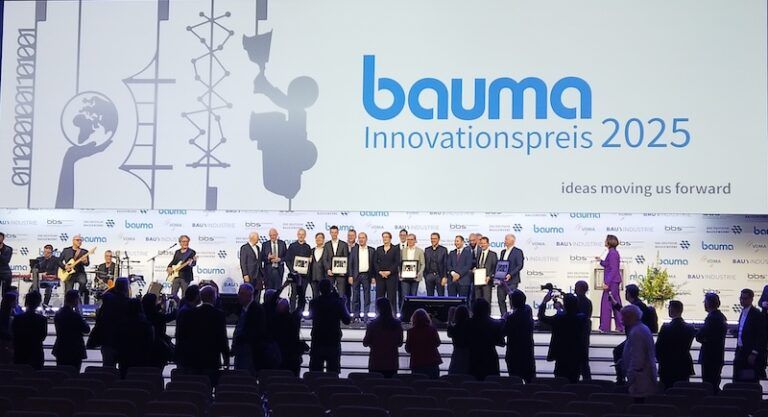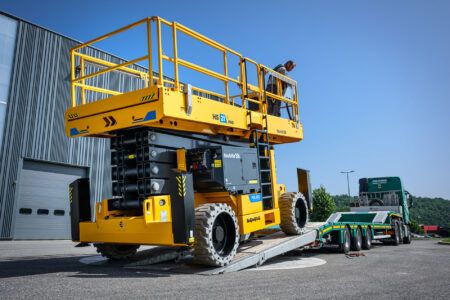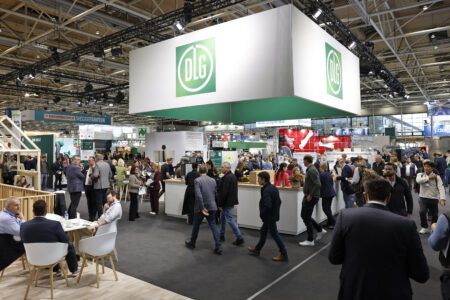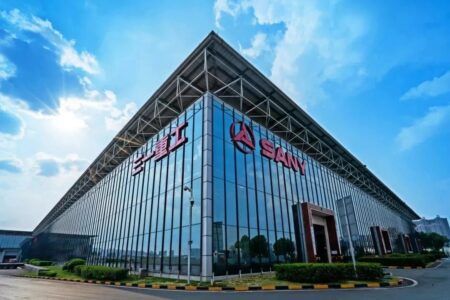At the official opening ceremony of Bauma in Munich the winners of the event’s prestigious Innovation Awards were announced, with Liebherr emerging as the standout victor in vehicle technology for its autonomous driving system for wheel loaders.
Five winners were announced out of 15 total nominees – three in each of the five categories.
Liebherr won in the Digititzation Category for its Autonomous Operations system that facilitates completely driverless operation, making it ideal for monotonous, standard jobs and hazardous areas.
The system guarantees constant machine performance, reduces wear and tear, and lowers energy consumption, marking a significant leap forward in construction machinery technology.
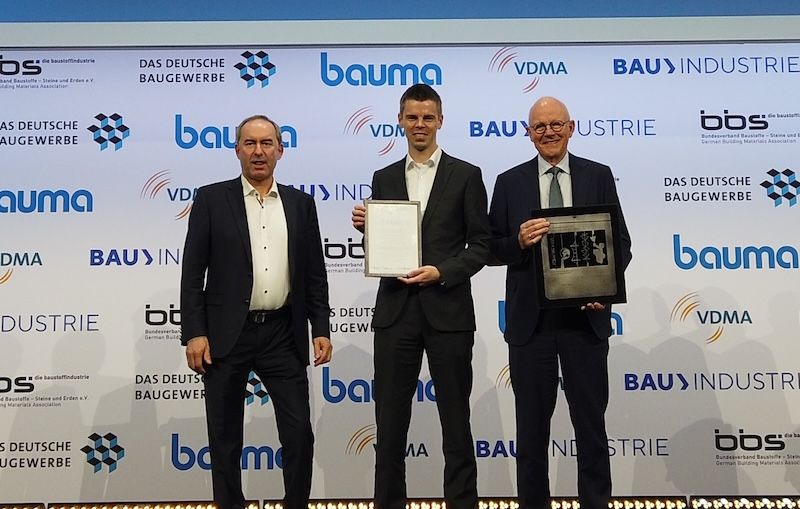
Dr. Manuel Bös, head of emerging technologies at Liebherr, expressed his excitement: “This innovation has been developed over decades. With Liebherr, you can really change things and roll out ideas. Today, we’re standing up here, and as a matter of fact, you don’t need any IT knowledge to operate the system. Anyone just needs a five-minute training to operate this machine.”
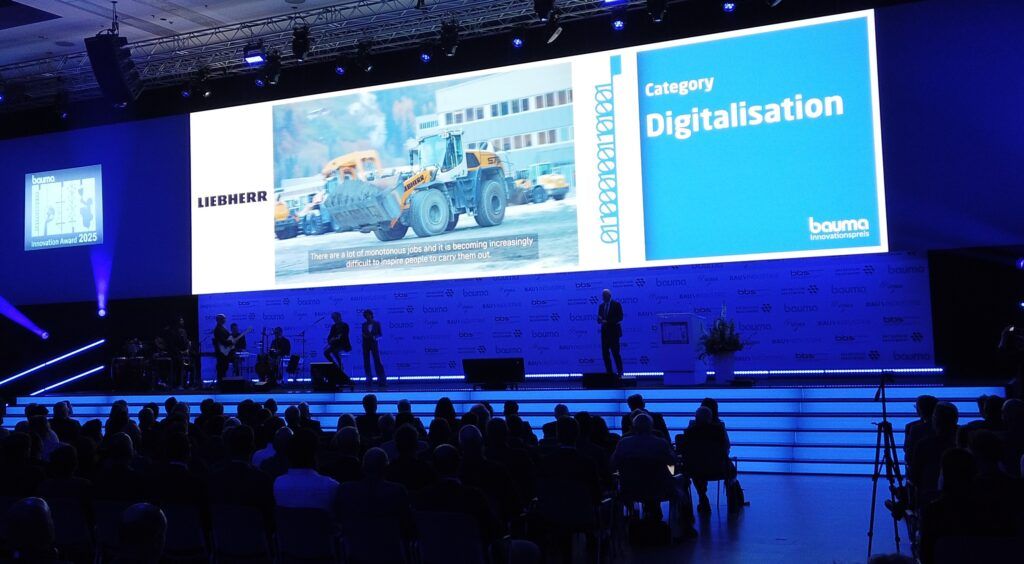
The autonomous system can switch seamlessly between manual cab operation and fully autonomous operation, offering flexibility and security. It can operate without GPS reception, making it suitable for use in various environments, including industrial halls, underground, and areas with high demolition walls or vegetation.
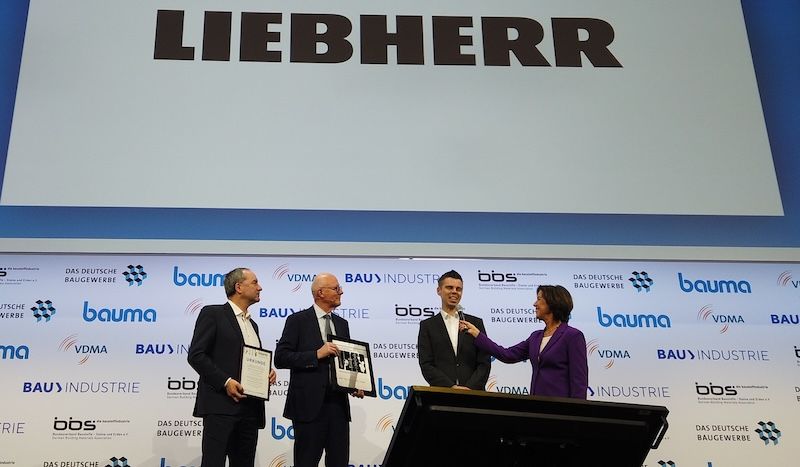
The awards, held on the eve of the main Bauma trade fair, highlighted groundbreaking innovations across five categories, showcasing the industry’s commitment to addressing global challenges such as climate change, decarbonization, and efficiency. The winners in the other four other categories were…
Climate Protection
Robert Thomas won for their ProCarbonCure, a sustainable curing solution that chemically cures concrete blocks with CO2, effectively locking harmful gases within the concrete.
Mechanical Engineering
Herrenknecht AG was awarded for their tunnel enlargement system, which allows for the safe renovation and enlargement of old railway tunnels while trains continue to operate, significantly reducing delays and costs.
Construction
Adam Hörnig Baugesellschaft was recognized for their innovative composite bridge construction method, which optimizes cycle times and completes superstructures more quickly by eliminating overhead construction.
Research
Center Construction Robotics (RWTH) won for its Mobile Assembly X-System, which provides a first plug-and-produce solution, working with robotic cables, which allows for semi-automated, scaffold-free assembly in building refurbishment.
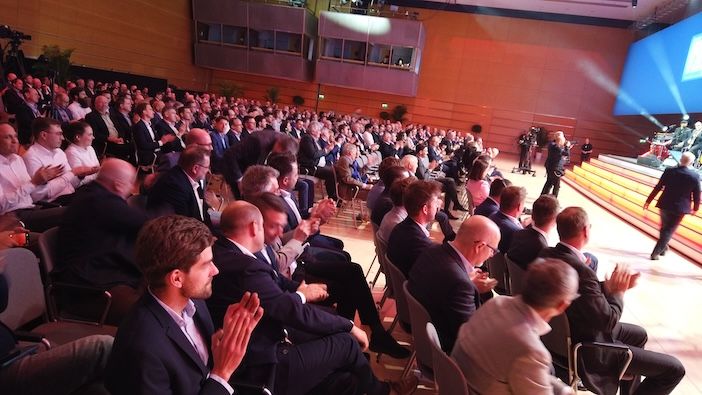
The event highilighted the construction industry’s role in tackling climate change and improving efficiency. A number of distinguished speakers too the stand, including German Federal Minister for Housing, Urban Development, and Construction, Klara Geywitz highlighted the sector’s innovative spirit and its impact on climate change. She emphasized the need for faster approval processes and pragmatic standards to facilitate progress.


